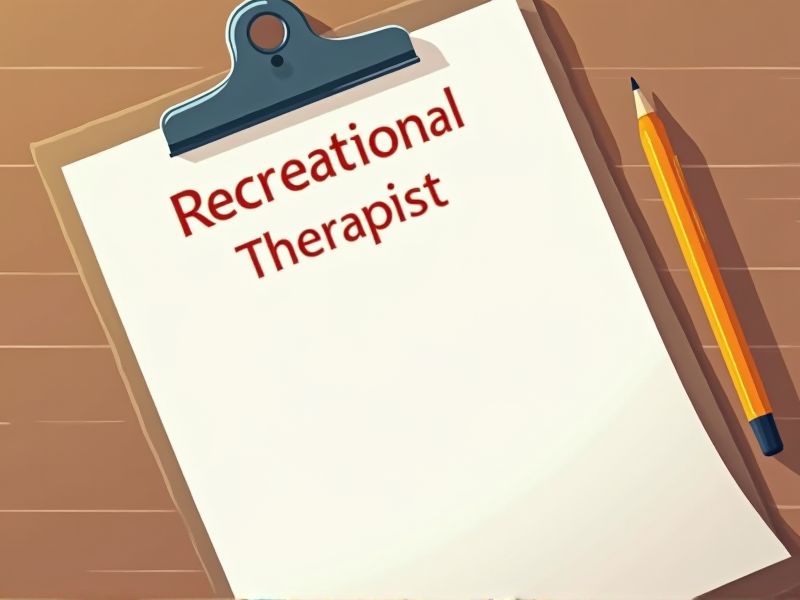
Recreational therapists work with diverse populations to implement therapeutic interventions, requiring them to understand various patient needs and conditions. Specific certifications validate their expertise and ensure they operate within professional standards. These certifications also enhance trust with clients and employers, indicating a commitment to ongoing education and skill improvement. Some important certifications may be necessary for a recreational therapist.
Certified Therapeutic Recreation Specialist (CTRS)
The CTRS credential ensures that a recreational therapist has met standardized national qualifications, enhancing the credibility and professional standing of the practitioner. Through specialized training, a CTRS is equipped to assess individual needs and design targeted recreational interventions, leading to more effective therapeutic outcomes. Credentialing as a CTRS provides a framework for maintaining continuing education, ensuring therapists remain updated with current best practices. Employers and clients tend to trust professionals with recognized certifications, which leads to increased employment opportunities and community trust for those holding CTRS credentials.
CPR/AED Certification
CPR/AED certification equips recreational therapists with the skills to respond to life-threatening emergencies during patient activities. Increased physical engagement during therapy sessions can raise the risk of cardiac incidents, making immediate response critical. Certification ensures therapists maintain a standard of care, enhancing patient safety and trust. Knowledge of CPR and AED fosters a safer therapeutic environment, potentially reducing liability in case of medical emergencies.
Basic Life Support (BLS) Certification
Recreational therapists often work with individuals who have physical, mental, or developmental challenges, increasing the likelihood of medical emergencies where BLS skills are essential. BLS certification ensures that therapists can perform CPR and use an automated external defibrillator effectively, critical actions that may save a life during cardiac or respiratory emergencies. Hospitals and rehabilitation centers typically require BLS certification to ensure their employees are prepared for any urgent medical intervention. Demonstrating BLS proficiency can enhance a recreational therapist's credibility and employability within healthcare settings.
First Aid Certification
Recreational therapists often work with individuals who have various physical and mental challenges, increasing the likelihood of unexpected medical incidents. First aid certification equips therapists with essential skills to manage these situations quickly, preventing further harm or complications. It also builds trust with clients and their families, as they feel assured of the therapist's ability to handle emergencies. Completing first aid certification often meets compliance requirements for healthcare and therapy-related positions, aligning with industry standards.
Pediatric Advanced Life Support (PALS) Certification
PALS certification equips recreational therapists with vital skills for handling pediatric emergencies, enhancing their ability to provide immediate and effective care. In recreational therapy settings, children can experience unexpected medical complications, necessitating advanced intervention strategies learned in PALS. Having PALS certification can increase a therapist's employment opportunities, as employers often prefer candidates who can ensure safety in child-focused environments. PALS training empowers therapists to confidently collaborate with healthcare teams during critical situations, reinforcing overall patient care and safety.
Certified Health Education Specialist (CHES)
Certified Health Education Specialists (CHES) bring expertise in developing and implementing health education programs, which enhances the therapeutic environment in recreational therapy. Their skills in assessing clients' educational needs ensure that recreational therapists can tailor interventions effectively. CHES professionals contribute to interdisciplinary teams by integrating health promotion strategies that align with therapeutic goals. Collaboration with a CHES enhances a recreational therapist's capacity to improve patient outcomes through evidence-based practices.
Mental Health First Aid Certification
Mental Health First Aid Certification equips recreational therapists with essential skills to identify and respond to mental health crises among clients. This certification enhances their ability to provide holistic care, addressing both physical and psychological needs. Recreational therapists with this training can better facilitate therapeutic activities that support emotional well-being. Evidence suggests that integrating mental health training improves client outcomes and overall therapeutic effectiveness.
Certified Adaptive Recreation Leader (CARL) Certification
The CARL certification ensures recreational therapists possess specialized skills to adapt activities for individuals with diverse abilities, enhancing the therapeutic experience. This certification demonstrates a therapist's commitment to continuous professional development and competency in adaptive recreation techniques. Employers are more likely to trust certified professionals to meet regulatory standards and provide high-quality care. By obtaining the CARL certification, therapists can expand their career opportunities and potentially achieve higher job satisfaction through improved service delivery.
Certified Activity Director (CAD)
Certified Activity Directors play a crucial role in developing structured and therapeutic recreational programs. Their certification ensures that activities are evidence-based and tailored to individual therapeutic needs. They help boost patient engagement, which can lead to improved mental health and physical well-being. Knowledge in regulatory compliance allows them to create programs aligned with healthcare standards, thus enhancing patient care quality.
OSHA Safety Certification
OSHA Safety Certification equips recreational therapists with the knowledge to identify workplace hazards, which is vital for ensuring patient safety in therapy settings. Compliance with safety standards reduces the risk of injury for both patients and therapists, contributing to a safer environment. Understanding safety protocols can enhance the therapist's ability to manage emergencies effectively, which is often required during therapeutic activities. Employers often seek certified professionals, as this certification reflects a commitment to maintaining high safety standards, potentially improving job prospects for therapists.
Summary
You will enhance your professional credibility when you obtain certifications as a Recreational Therapist. Employers may prioritize you for job opportunities due to your specialized credentials. Clients are likely to experience more comprehensive care from your expanded skill set. Certification can lead to career advancement and potentially higher earnings for you.
